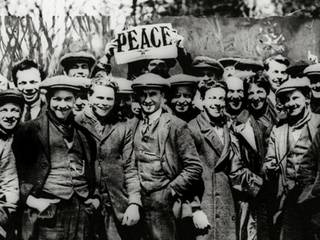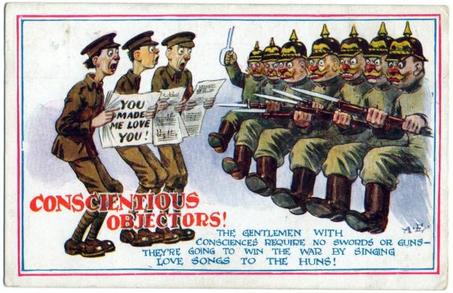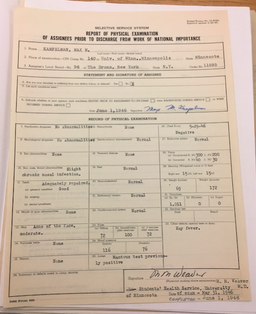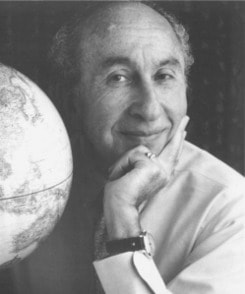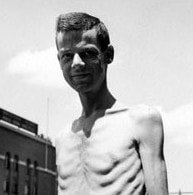“There are perhaps many causes worth dying for, but to me, certainly, there are none worth killing for.”
- Albert Dietrich, Conscious Objector, 1939
|
Conscientious Objectors (COs) are people who, for moral or religious reasons, refuse to perform military service. In WWI, COs were sent to military prisons for evading the draft. In these prisons, COs worked to exhaustion, and in extreme cases, death. However, in response to a growing pacifist movement, the Selective Service realized a new system was needed to utilize COs in war.
"The Sergeant began to beat and torture me, using his fists, for one-half to two hours, slapping and punching me. He also thrust the bayonet into me several times and used it on my hands." Conscientious Objectors at Protest, The Independent, 1917
|
"The Conscientious Objector in The Front!," 1917.
“I see that the means we employ to ‘defend’ our ‘way of life’ profoundly change that way of life. I see that in our failure to recognize the political, social, and economic realities of the world, we, as a nation, fail our responsibility as a nation.” |
Shifting Policy"Any person subject to military law... who willfully disobeys any lawful command of his superior officer, shall suffer death or such other punishment." "Persons paroled for assignment to work of national importance under civilian direction... shall be assigned to such work by the Director of the Selective Service in such manner as [The Director] may determine." |
Personal Photograph, Minnesota Historical Society Archives, 2018.
|
Through the Participants' Eyes
|
Conflicting Ethics"War, in my view, is so wrong, so immoral, that I cannot take part in it and still live with myself" "[I] think of killing in war as akin to a doctor amputating the infected limb of a wounded warrior—it’s sad and painful, and it takes training and courage to do right, but is the morally right choice... and ought to be done." |
|
Max Kampleman
|
Samuel Legg
|
|
"Why do people who were drafted go to fight wars, without escaping? Because there's a duty. It's the same kind of a thing, just a different battlefield. And from our point of view at the time, it was a battlefield consistent with what our conscience would tell us. But it was a battlefield. And battlefields are not supposed to be easy."
- Max Kampleman, Minnesota Starvation Experiment participant, 1993
Ella Hoch Robinson
A Duty to Starve: The Minnesota Starvation Experiment
First Place National History Day 2018
Junior Individual Website
Word Count: 1200
Media Time: 3:57
Process Paper: 499
A Duty to Starve: The Minnesota Starvation Experiment
First Place National History Day 2018
Junior Individual Website
Word Count: 1200
Media Time: 3:57
Process Paper: 499
Proudly powered by Weebly
